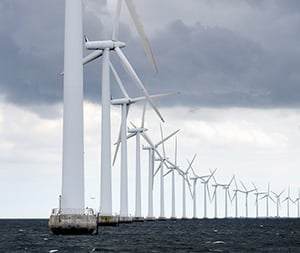How outdated patent laws threaten Dutch wind industry
 With a patent you protect your innovation in one or more countries, but what if that innovation is not being used within a clear national border? That question is crucial to the wind industry. An industry that is growing enormously thanks to the construction of wind farms on land and at sea, but which partly takes place outside territorial waters. Dutch entrepreneurs have a market share of up to 25% in this industry. That share is at risk, however, because their intellectual property is not properly protected under the current Dutch Patent Act. I explained why this is so worrying for entrepreneurs and the Dutch economy for the website and magazine entitled Windenergie Nieuws.
With a patent you protect your innovation in one or more countries, but what if that innovation is not being used within a clear national border? That question is crucial to the wind industry. An industry that is growing enormously thanks to the construction of wind farms on land and at sea, but which partly takes place outside territorial waters. Dutch entrepreneurs have a market share of up to 25% in this industry. That share is at risk, however, because their intellectual property is not properly protected under the current Dutch Patent Act. I explained why this is so worrying for entrepreneurs and the Dutch economy for the website and magazine entitled Windenergie Nieuws.
Patent protection on natural resources
The answer to the above question is that if your innovation is outside the national borders, it is not necessarily protected. The Dutch border runs 12 nautical miles, that is 22.22 kilometres, from the coast. As you can see from the map, not all wind farms in the North Sea are within that border. As a result, makers of wind energy technology are at great risk. Their intellectual property is currently not well protected there.
Now you may wonder how that works for other offshore industries, such as oil and gas. The answer is that oil and gas technology is protected. In law, these raw materials are considered to be 'natural resources'. The Dutch Patent Act provides protection for the Dutch part of the continental shelf for technologies that focus on such natural resources. At present, wind energy does not count as a natural resource. This old-fashioned vision is now putting an entire industry at risk.
Exponential growth
If foreign entrepreneurs get wind of this loophole in patent legislation, the chance of forgery seems particularly high. If they figure out how wind technology works, they can simply copy it and use it on the continental shelf, and easily poach a percentage of the market share.
For Dutch companies, it is important that their technology cannot simply be copied. Dutch entrepreneurs have a legitimate interest in being able to recoup the costs of their hard-won offshore technology. It is no small beer. The wind industry is currently growing exponentially. Up until 2030, 11GW(!) of wind energy is to be installed in the Dutch part of the North Sea. That is why it is also a national interest.
The Ministry of Economic Affairs is currently working on an amendment to the Dutch Patent Act. Hopefully wind energy will be included as a natural resource in this. In these times of energy transition and climate problems, this is not only a logical step, but also an important bolster for the Dutch economy.

About the author
My father was a successful inventor and I have been raised with technical creativity throughout my childhood. However, I always knew that was not enough for me. I like language, law, business &...
More about Walter >